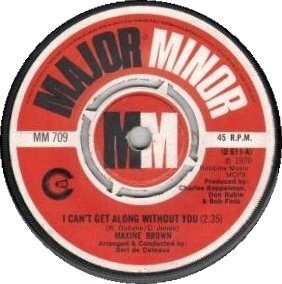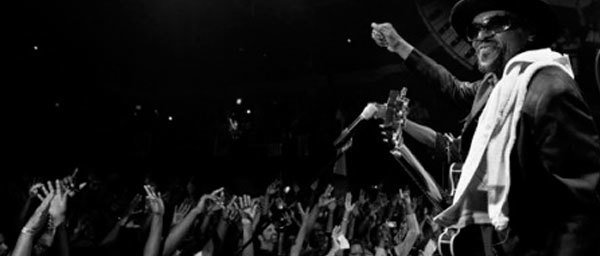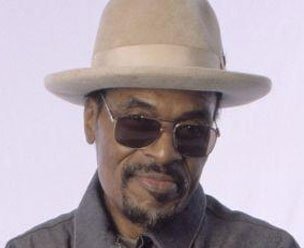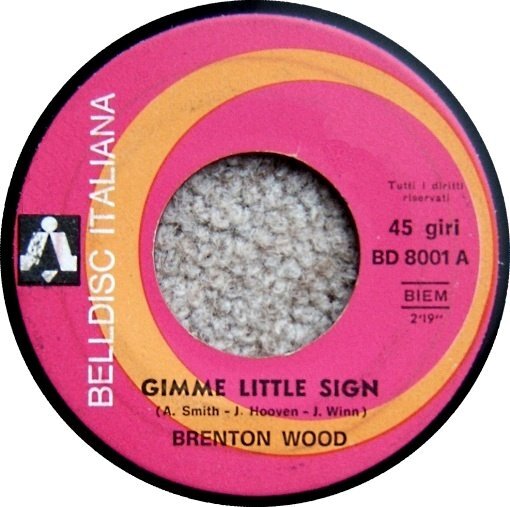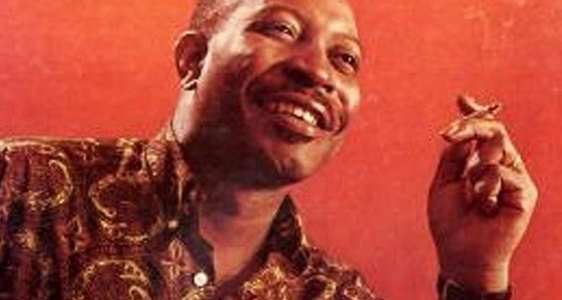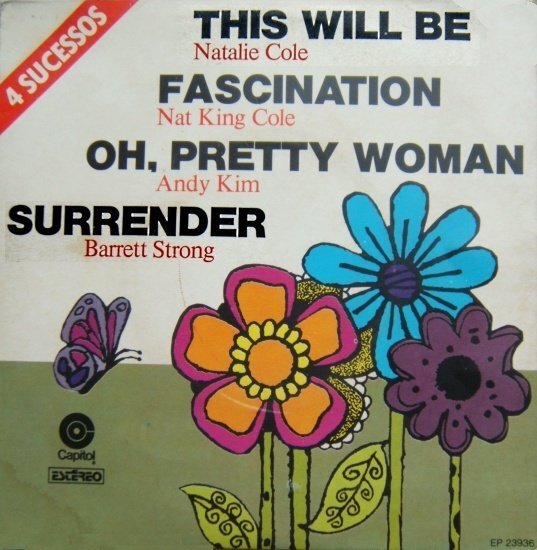-
Posts
7,237 -
Joined
-
Last visited
-
Days Won
45 -
Feedback
0%
Content Type
Forums
Event Guide
News & Articles
Source Guidelines and Help
Gallery
Videos Directory
Source Store
Everything posted by Roburt
-
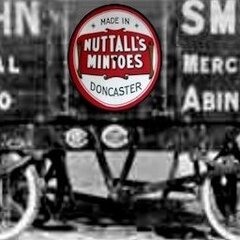
Copy Of Blues & Soul Selling For £154 Yesterday
Roburt replied to Pete S's topic in Look At Your Box
Yep, I've got a copy of that B&S 'Motown Story' mag here somewhere. -
Forgot to mention Hit & Run plus loads of good soul 45's on Pama of course.
-

Pioneers Of Northern Soul On The Radio Back Then
Roburt replied to Sjclement's topic in All About the SOUL
Mike Raven went off to appear in Hammer Horror films ..... ... was it Dave Symonds that replaced him as host of the Radio 1 Soul Show ? -
The Maxine Brown 45 on Major Minor ........ There were a few other Detroit connected 45's on Ember (Jones Girls, Ed Robinson, etc) PLUS a few nice items on King Records (Mary Love).
-
Another B&C label in the UK > People (Brothers, Doris Troy, Don Gardner & Baby Washington etc) Satril (by Spartan) -- Amusement Park + Dunn & Bruce Street in 80's Demon -- some 45's (& 12's) on their own label (Lamont Dozier, Persuasions, etc). Big Wave (the Waters) The famous specialist soul labels -- Soul City; Deep Soul; Move, Expansion & many more ... and numerous NS related labels (Absoulute, Joe Boy, etc).
-

International Postal Charges From France - I Don't Get It
Roburt replied to Mick Holdsworth's topic in All About the SOUL
No, France isn't trying to privatise its postal service so postage costs remain cheap. -

Copy Of Blues & Soul Selling For £154 Yesterday
Roburt replied to Pete S's topic in Look At Your Box
I also have a copy of B&S 17 ... and all the others round that number that had parts of the 'CurtisMayfield' story & discog in them (5 or 6 in all I think). Think I'll hang on to em unless people want to pay 'silly money'. -
Other labels with decent soul stuff: Major Minor (Isleys & Maxine Brown LP) B&C (home company for Action as well) SrB or SnB (a girl group with a strange name soulie thing) Quality (the Canadian label: distrib by Private Stock) -- a Sweet Blindness 45 Orbitone -- a few London soul things mixed in with the reggae 45's Jungle (a Nina Simone 45) Lovebeat (James Cobbin & Prime Cut 45) World Dance Records (Hannah Jones, etc)
-
Was it Faith, Hope & Charity (+ Ben E King) 45's that came out on Crewe (the UK version of Bob Crewe's label I think). With regard to the 1960's UK Carnival label, there were dozens of copies of those Manhattans UK 45's all together in a box of 45's a Dony 2nd hand shop (on Copley Rd) had back in the late 60's. Every other 45 in the same box (all bought together by the shop owner) were UK reggae label things. That's why I always assumed it was a UK reggae label that had put these 45's out (maybe they were distributed by Phillips back when new, however the singles label gives no clues at all to which company issued or distributed these 45's).
-
I'll have to find my copy of "love Lots Of Loving" out; it sounds damn fine to me now !!!
-
I thought the Marmalade label was part of the Polydor group -- Julie Driscoll & Brian Auger Trinity's "Open" LP was on the label (one side vocals, tuva organ instros -- some good mod type stuff on it).
-
With the thread about Inferno / Destiny 45's, thought I would ask which are the 'little' UK labels that put out the best soul 45's ...... A few that instantly spring to mind with me are ......... BUFFALO: the Justin (issued as by Justine) and a Betty Harris & Lee Dorsey duet if I'm not mistaken. CARNIVAL: The UK version of the (NY) label that the Manhattans early cuts were on. Run & put out by a London based reggae label if I'm not mistaken. My fave on this label is the Manhattans "That New Girl" ...... in the 80's there was also the Nite Life label that had the Carnival logo on it as they issued the New Jersey Conn's "Love Don't Come Easy" in 1982. PAGE ONE: Some nice items that look especially good on red & white demos. The Pic & Bill 45's are among the best on the label in my opinion. Lots of 60's & early 70's releases (Fab, Rainbow,etc) but the labels kept going well after that .... the later releases not being of too much interest to the NS crowd though. There was the Mojem label which I believe was owned / run by Jimmy James (label name probably derived from Mojo & gem). Have an EP from Jimmy James on the label but its a bit strange as 2 of the tracks seem to be re-recorded versions of tracks he had out on Pye just before the label dropped him. Others include Ardent, Barak & Tammi plus some nice items on bigger labels such as Ember (Mickey Stevenson 45's, etc). Lots more UK groups on London based little labels, especially after Soul to Soul went massive but as these increase in number its hard to keep track of all the arists / labels out there (some are The Brothers Org; Rugged Ram; Heaven Sent; A & W; Soultown; TPL; Kongo, etc).
-

Bo Saris-Shes On Fire....new Release,nice Tune
Roburt replied to arnie j's topic in All About the SOUL
a remix version of the track ........ https://www.youtube.com/watch?v=nDMF4A6VZ7w I prefer the original though. -

Pioneers Of Northern Soul On The Radio Back Then
Roburt replied to Sjclement's topic in All About the SOUL
RE: Your'e right with the Kelly Temple, but before his time there John Green run a soul show .... That was the early to mid 70's soul show guy on Hallam .... John Green. I'm sure he quit the radio stn show when he bought a record shop in Woksop. -
Leader of the Soul Searchers back in the early 70's and DC Go Go star Chuck Brown has passed away. http://www.washingto...6zUU_story.html http://www.washingto...GGxT_story.html added by site Affectionately known as the Godfather of Go Go, Chuck Brown created the Go Go sound. He combined Latin beats, African call and response chants and American Jazz, throwing in a touch of soul with a continuous drumbeat. This nonstop dance music is and has been a trademark of original creative music from the nations capital, Washington, D.C., and has gained Chuck Brown worldwide fans. Chuck Brown began his musical career in the early 60s. His first stage experience was with Jerry Butler and the Earls of Rhythm. Then in 1965, he joined Los Latinos, whose syncopated backbeat enthralled him. This experience gave Chuck the confidence to get out on his own, incorporating all these styles into his band and introducing a sound unlike anything available at that time. I got sick and tired of watching people sitting around, Chuck says Disco was too fast-people didnt want to get all sweaty, and they just sat down. So we cut the beat in half. Chuck called this new sound Go Go, because it never stops. Chuck Brown exploded onto the scene in 1971 with his first hit We The People. In 1972 he scored again, with the hit Blow Your Whistle. This was followed by the gold album Bustin Loose and the ..1 hit single of the same name on MCA/Source Records. full bio can be read via http://www.myspace.com/chuckbrowndc
-
Another early Soul Searchers collectable 45 ....... their take on JB's "There Was A Time" .......
-
BTW, Chuck Brown and this group has nothing to do with Jake Wade & the Soul Searchers who were from the Michigan area.
-
An early Soul Searchers funk track ........
-
More info on the influence an early Soul Searchers track had on the later US music scene ..... https://funky16corners.wordpress.com/2008/02/06/the-soul-searchers-ashleys-roachclip/
-
Leader of the Soul Searchers back in the early 70's and DC Go Go star Chuck Brown has passed away. Affectionately known as the Godfath... Tap to view this Soul Source News/Article in full
-

Pioneers Of Northern Soul On The Radio Back Then
Roburt replied to Sjclement's topic in All About the SOUL
Before Richard Searling hit Radio Hallam (Sheffield) for the 1st time around 1980, there was a Saturday evening soul show (might have been presented by Kelly Temple but it was an 'everyday' Hallam DJ who had this one soul show each week). Anyway, he always had a NS spot, the records (about 3 each week I seem to recall) were provided by Worksop DJ / collector / dealer Pete Ward. Many years earlier (1973/4-ish), Hallam had a specialist guy on who always had a NS show but I think he bought a record shop in Worksop & went off to run that. -
-
Jimmy Ricks was born in Adrian, Georgia before his family relocated to Florida... Tap to view this Soul Source News/Article in full
-
Jimmy Ricks was born in Adrian, Georgia before his family relocated to Florida. During World War 2, he moved to New York where he worked as a waiter at the 400 Tavern in Harlem (148th Street & St. Nicholas Ave). Whilst there, he met Warren 'Birdland' Suttles who originally hailed from Alabama. In early 1946, they decided to form a vocal group and recruited Leonard "Zeke" Puzey (who had just won a talent contest at the Apollo Theater) and 'Ollie' Jones. They found a manager, Ben Bart, and an accompanist, Howard Biggs, and made their first recordings for Bart's small Hub record label. They called themselves the Ravens and so initiated the trend for vocal groups to name themselves after birds. Although the group were strongly influenced by the Ink Spots & the Mills Bros, they used Ricks' bass voice rather than a more conventional tenor as the lead on their recordings and this became their trademark style. The Ravens primarily existed to showcase Ricks voice; he made Isaac Hayes sound like Betty Boop. Ricks' voice became the standard against which every rhythm and blues bass was measured for the next decade. The group had quite a few big chart hits, making it onto the national R&B chart 11 times over a 4 year period (1948 to 1952). This success made them a popular live act and they could command a fee of $2,000 dollars a night. However, Ricks quickly developed an attitude problem and his ego resulted in Howard Biggs quitting. After their initial single, "Honey", Jones had left the group and was replaced by Maithe Marshall. The contrast between Ricks' bass voice and Marshall's tenor soon became an important part of the group's success. They left the Hub label in 1947 to join National Records for whom they had immediate hits (the 1st one making the national chart early in January 1948). Their success with National prompted King to license some of their old Hub tracks for release and one of these even made the US Top 10 in summer 1948. Also that year they were landing gigs at prestigious venues such as the Adams Theater in Newark, NJ, Chicago's Regal Theater, the Million Dollar Theater in LA and a two week long stint at the Club Bali in Washington, DC. 1949 saw them play the Apollo a number of times plus the Paradise Theater in Detroit, the Royal Roost in NY (47th & Broadway), L.A.'s Club Oasis, the Earle Theater in Philly and Broadway's Bop City (Manhattan). Their run of R&B successes continued through to early 1950, with the basic line-up of Ricks, Suttles, Puzey, and Marshall essentially remaining together for several years. The group signed with Columbia & Okeh Records in 1950, before moving to Mercury the following year. In 1951 Marshall and Puzey both left, being replaced by Joe Van Loan and various other shorter-term group members. The group had its final hit on the R&B chart in October / November 1952, when "Rock Me All Night Long" rose to No. 4 (the highest position one of the group's 45's had ever reached). Unfortunately it was to be their last chart entry and in 1953 some of the recordings released as by the group were actually solo efforts by Jimmy. But with the rise of R&R, their style had became increasingly unfashionable. After several break ups within the group, Jimmy's version of the Ravens signed with Jubilee in 1955. But he soon quit the group to try for a solo career (1956). Jimmy must still have been something of a 'handful' to deal with and this showed as he was signed to 6 different labels before the end of the decade (Josie, Baton in 1957, Decca & Felsted being some of these). He was without a record deal in 1958 but was signed up by Felsted Records in 1959. Felsted Records was part of the Decca family and operated out of the New York office of London Records. They were very prolific with their releases in 1959, putting out 96 singles and about 3 LP's (one of these by the Jimmy Wisner Trio). Jimmy's first release for the label was "Secret Love" and this escaped early that summer. His new record label must have put some promotional effort behind this 45 as it seemed to do quite well (radio play wise) in the 'breakout' market of Baltimore. Here it seems to have been a popular track on radio stations WSID and WITH and this helped Jimmy secure two bookings at the top 'chitlin circuit' venue of Carr's Beach (near Annapolis) in September that year. He appeared on a bill with Hank Ballard & the Midnighters plus Faye Adams on Sunday 6th September and returned alongside the Bill Doggett Trio the following day. Jimmy continued to record as a solo singer without too much commercial success throughout the 1960's. He had records out on Atlantic, Atco ("Daddy Rolling Stone" with the Raves), Fury, Felsted Records (an earlier recording ?), Mainstream, Sure Shot, Festival ("Oh, What A Feeling") & Jubilee. Having lost his solo recording contract by 1970, he and Suttles got back together and temporarily revived the Ravens (adding additional members Gregory Carroll & Jimmy Breedlove) in 1971. At the time of his death, at the age of 49 in 1974, he was the vocalist for the Count Basie Orchestra.
-



